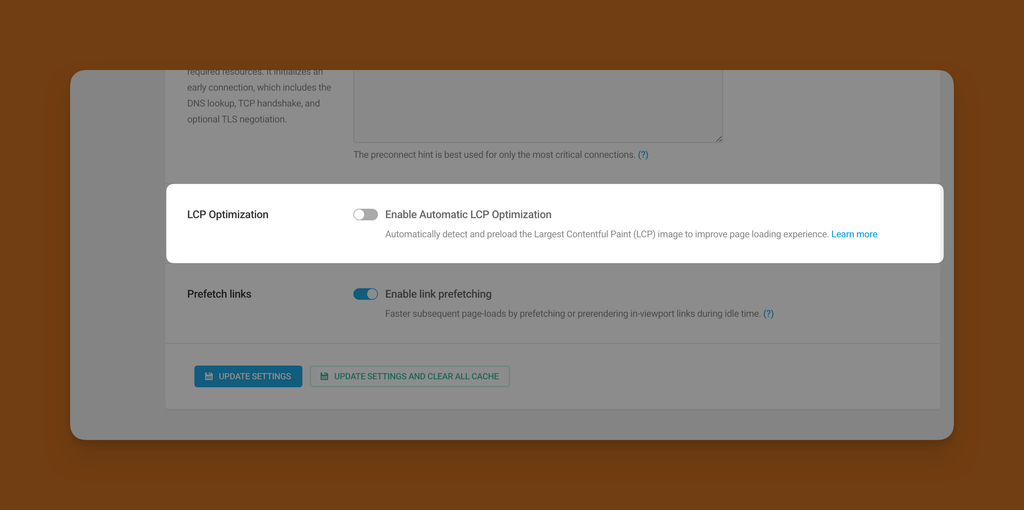Automatic LCP Optimization is the central focus of the Powered Cache 3.7 release, bringing a more streamlined and reliable way to improve front-end loading behavior while introducing several refinements across both the core and premium plugins.
While this release includes several technical improvements under the hood, two enhancements stand out: Automatic LCP Optimization (Premium) and our expanded UCSS detection logic. These additions aim to simplify performance tuning and provide more consistent results without requiring extra effort from you.
Below is a quick look at what’s new.
Table of Contents
Automatic LCP Optimization

This release introduces automatic handling for Largest Contentful Paint elements. The goal is to reduce manual tuning by detecting key LCP elements and applying targeted optimizations where supported.
It’s designed to integrate naturally with your existing setup while keeping configuration simple.
Improved UCSS Detection
The UCSS system can now identify template files and parent templates more accurately. This enhancement helps produce more consistent unused CSS coverage across layouts and theme variations.
Smarter Delayed JavaScript Handling
- Refined dependency chain resolution for increased reliability, especially with complex script structures.
- Delayed JS execution now supports
DOMContentLoaded, offering more flexibility for script timing. - Defer.js updated to 3.9 which brings in the latest upstream improvements.
Ajaxified Cache Purge Dismissal
Cache purge dismissal is now handled via AJAX, reducing admin friction and improving responsiveness and UX.
Updated Redis Drop-in
The bundled Redis object cache drop-in has been refreshed for improved stability and compatibility.
🧹 Minor Adjustments & Quality Refinements
- Dependency updates.
- Missing i18n text domains fixed.
- General compatibility improvements.
- Fully tested with WordPress 6.9.
Powered Cache 3.7 focuses on making performance optimization feel smoother and more predictable. The new LCP and UCSS enhancements in Premium work quietly in the background to support a consistent front-end experience, while the core plugin receives several refinements to keep everything running efficiently.

